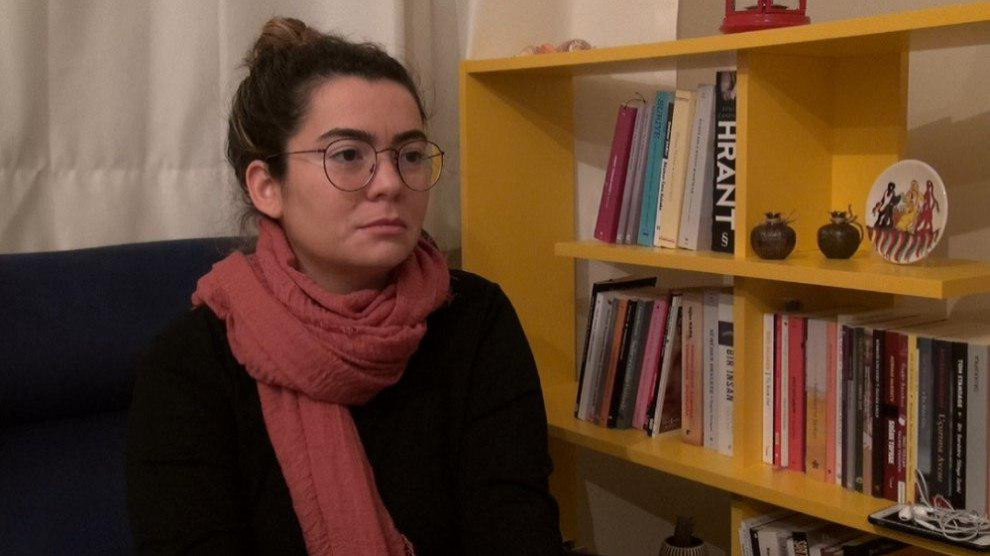ÖHD: Prisoners' right to health should be considered a priority
Lawyer Gulan Çağın Kaleli said that the annotation in Law No. 6411 should be abolished and the right to health should be taken as a basis to ensure the rights of ill prisoners.
Lawyer Gulan Çağın Kaleli said that the annotation in Law No. 6411 should be abolished and the right to health should be taken as a basis to ensure the rights of ill prisoners.

ÖHD Secretary General, lawyer Gulan Çağın Kaleli speaking about the condition of ill prisoners said: "The obstacles to the applications we make to ensure health rights and executions of ill prisoners should be removed."
The condition of ill prisoners in Turkish prisons is getting worse. In recent years, at least one ill prisoner dies in prison every month. Despite the efforts of the civil society organizations carrying out work and initiatives on the delicate issue, the Turkish government and related institutions remain silent.
Lawyers Association for Freedom (ÖHD) Secretary General, lawyer Gulan Çağın Kaleli, spoke to ANF about the rights of ill prisoners.
The situation is worse than that shown by figures
Lawyer Kaleli said that the total number of ill prisoners is 1334, and 458 of them suffer from a serious health condition. These figures are from April 2019 and are provided by the Human Rights Association.
Kaleli added that these figures were compiled crossing the information received from both prisoners and their families who actually have contacted civil society organisations. There are many prisoners, though, who haven't been in contact with such organisations, or cannot be reached by them.
"There are too many prisoners who do not put their situation on the agenda or don't give priority to it. We have already had the opportunity to observe this in our prison visits. Therefore figures are surely not reflecting the true reality of the situation."
Despite the reports, prisoners are not released
Providing information about the work carried out on ill prisoners, lawyer Kaleli said: "At the request of the prisoners, applications are made to stop the execution of a judicial sentence. The prisoners' health conditions are getting harder and we face obstacles in the applications we have made to stop the execution of the sentence. There is an annotation introduced in law number 6411. The phrase 'threatening social security ...' is one of the biggest obstacles we face because even when reports said that the prisoner 'cannot stay in prison' the use of this remark means they are kept in prison. This is the obstacle that we, the lawyers, must overcome."
Prison conditions are bad for health
Lawyer Kaleli said that the poor health condition of prisoners depends on two reasons. "Before going to jail there are people who already suffer from a chronic illness and this condition got worse as a result of them being kept behind bars. And there are people who have entered the prison in a healthy situation and got ill because of the conditions in which they are forced to live. In both cases, the common denominator are the prison conditions. We receive a lot of applications especially regarding stomach and intestinal problems. This clearly exposes the poor quality of nutritional conditions in prison. In terms of women prisoners, joint pain caused by immobility is quite frequent."
Deportation, violence, handcuffs
Advocating that the people held in prison should have the same rights when it comes to health, lawyer Kaleli said: "Often the medical files of the ill prisoners who are deported are not sent to the new prison. Therefore, the prisoners have to start all procedures again.
In the applications we receive, we see that the places where the most violation is experienced are prisoner reception wards. These wards are in basements, places without sun. Treating prisoners with chronic conditions here means that their treatment will not be successful due to being in an area open to infection."
Kaleli added: "The imposition of visits while being handcuffed is one of the most violent issues. When prisoners are transferred from prisons to hospitals, they are kept handcuffed also during examination. This is unfortunately a bad legacy of the 'Triple Protocol' signed by the ministries of health, justice and home affairs. In the protocol, there is a clause saying that the prisoner should be examined with a handcuffs or gendarmerie even they pose a security threat. This is a condition that completely violates patient privacy."
Stating that the problem of ill prisoners is a health, law and political issue, lawyer Kaleli sai: "When we consider these three topics, there is a deprivation of liberty and there are health problems resulting from this. There are obstacles put in front of us once we take steps to ensure these health problems are dealt with properly. The right to health should be prioritized."